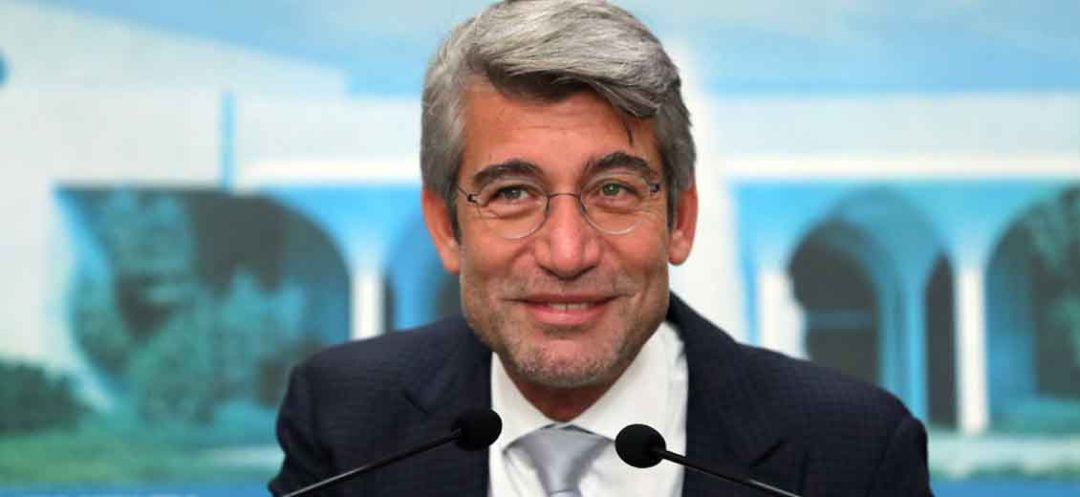
Caretaker Minister of Energy Walid Fayad “hoped” that the total blackout would not take place, as announced on August 17. He indicated that the ministry was working hard to find solutions, with the first shipment of diesel not expected until the first week of September.
In this context, it should be noted that as early as Saturday, August 17, there could be a total blackout in Lebanon due to the absence of any fuel deliveries.
Fayad hoped that the Lebanese would be patient “because he is trying to solve problems by proposing alternatives,” given that the situation is difficult and that political one-upmanship is delaying a solution.
As for the Iraqi commitment to fuel shipments, he assured that it is still in place, but that the incapacity of the Lebanese Parliament has halted deliveries.
It should be noted that, despite the preventive measures taken since July 27 to avoid a blackout, the Deir Ammar power plant has been out of service for a week, the stock of diesel has been completely exhausted, and the public supplier has had to shut down a production unit at the Zahrani plant to preserve its stock. These measures aimed to guarantee the operation of the other unit at the Zahrani plant for as long as possible, thereby ensuring as much power as possible for citizens and maintaining a continuous power supply for vital installations such as the airport, port, water pumps and sewers.
According to the state-owned company, the delay in diesel deliveries is due to the fact that, under the exchange agreement with Iraq, no cargo has been scheduled for Electricité du Liban, either for July or even for August 2024.
Electricity production in Lebanon currently relies on the Zahrani and Deir Ammar power plants, while those at Jiyeh and Zouk need maintenance. Zahrani and Deir Ammar receive diesel fuel supplied to EDL by the Ministry of Energy monthly, under the exchange agreement signed between Iraq and Lebanon on July 23, 2021. This agreement, which came into force in September 2021, provides for Iraq to supply fuel to Lebanese power plants on advantageous terms, the quantity having been set at 100,000 tons per month. However, due to its high sulfur content, Iraqi fuel cannot be used directly in Lebanese power plants. As a result, Lebanon buys a compatible type of fuel from other suppliers selected by tender, in exchange for which they receive Iraqi fuel.
In this context, it should be noted that as early as Saturday, August 17, there could be a total blackout in Lebanon due to the absence of any fuel deliveries.
Fayad hoped that the Lebanese would be patient “because he is trying to solve problems by proposing alternatives,” given that the situation is difficult and that political one-upmanship is delaying a solution.
As for the Iraqi commitment to fuel shipments, he assured that it is still in place, but that the incapacity of the Lebanese Parliament has halted deliveries.
It should be noted that, despite the preventive measures taken since July 27 to avoid a blackout, the Deir Ammar power plant has been out of service for a week, the stock of diesel has been completely exhausted, and the public supplier has had to shut down a production unit at the Zahrani plant to preserve its stock. These measures aimed to guarantee the operation of the other unit at the Zahrani plant for as long as possible, thereby ensuring as much power as possible for citizens and maintaining a continuous power supply for vital installations such as the airport, port, water pumps and sewers.
According to the state-owned company, the delay in diesel deliveries is due to the fact that, under the exchange agreement with Iraq, no cargo has been scheduled for Electricité du Liban, either for July or even for August 2024.
Electricity production in Lebanon currently relies on the Zahrani and Deir Ammar power plants, while those at Jiyeh and Zouk need maintenance. Zahrani and Deir Ammar receive diesel fuel supplied to EDL by the Ministry of Energy monthly, under the exchange agreement signed between Iraq and Lebanon on July 23, 2021. This agreement, which came into force in September 2021, provides for Iraq to supply fuel to Lebanese power plants on advantageous terms, the quantity having been set at 100,000 tons per month. However, due to its high sulfur content, Iraqi fuel cannot be used directly in Lebanese power plants. As a result, Lebanon buys a compatible type of fuel from other suppliers selected by tender, in exchange for which they receive Iraqi fuel.
Read more



Comments